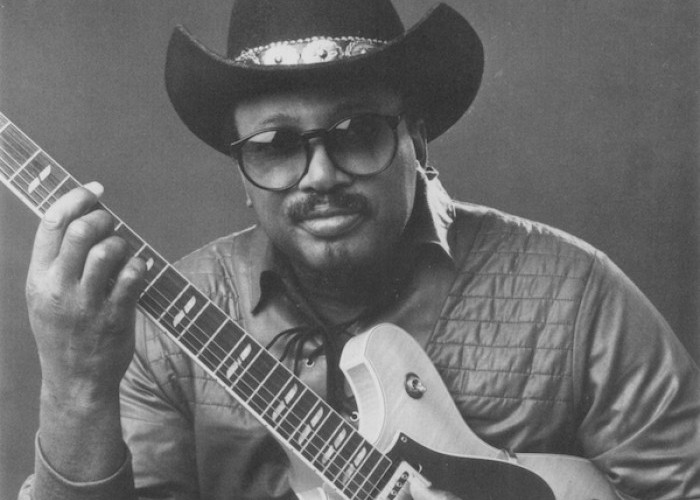Jan 13, 2026 2:09 PM
More Trump-Kennedy Center Cancellations
The fallout from the renaming of the John F. Kennedy Center for the Performing Arts to include President Donald…

Otis Rush (1935–2018)
(Photo: Kirk West/DownBeat Archives)Guitarist and vocalist Otis Rush, long revered as a pioneer of Chicago’s blues scene, died on Sept. 29 at age 83.
Rush had not been an active performer in recent years, following a stroke he suffered in 2003.
His discography includes the album Any Place I’m Going (1998), which won a Grammy in the category Best Traditional Blues Album. The album featured a few of Rush’s original compositions, including “Keep On Loving Me Baby” and “Looking Back.”
His other Grammy-nominated albums are Ain’t Enough Comin’ In (released in 1994), So Many Roads (recorded live in Tokyo in 1975) and Right Place, Wrong Time (recorded in a San Francisco studio in 1971).
Rush was born in Philadelphia, Mississippi. As a teen in 1949, he moved to Chicago, where, over the course of his career, he would perform at venues on city’s West Side, South Side and North Side. Rush appealed to a diverse fan base drawn to his fiery guitar work and passionate vocals.
His early work on the Cobra label contains songs that became blues classics, including his debut single from 1956, a rendition of the Willie Dixon composition “I Can’t Quit You Baby.”
In Charles Carman’s article “The Worrisome Woes of a Workingman,” published in the April 7, 1977, issue of DownBeat, Rush said, “If you got a band and the band is playing well, and everybody acts like they’re ready to play, then it’s a nice feeling to be onstage. You get a good feeling playing the blues sometimes. You can let it out that way, but it doesn’t cure anything.”
In addition to influencing generations of blues artists, Rush also was admired by rock stars. He performed with Eric Clapton at the 1986 Montreux Jazz Festival, and he opened for Pearl Jam at Chicago’s Soldier Field in 1995.
Among the artists who have recorded “I Can’t Quit You Baby” are Led Zeppelin, John Mayall, Gary Moore and the Rolling Stones.
Rush was the subject of a tribute at the 2016 Chicago Blues Festival, which he attended. Among Rush’s accolades is his induction into the Blues Foundation’s Blues Hall of Fame (1984).
A statement on Rush’s website indicated that the funeral service would be private and that a public celebration of his work was in development. DB

Belá Fleck during an interview with Fredrika Whitfield on CNN.
Jan 13, 2026 2:09 PM
The fallout from the renaming of the John F. Kennedy Center for the Performing Arts to include President Donald…

Peplowski first came to prominence in legacy swing bands, including the final iteration of the Benny Goodman Orchestra, before beginning a solo career in the late 1980s.
Feb 3, 2026 12:10 AM
Ken Peplowski, a clarinetist and tenor saxophonist who straddled the worlds of traditional and modern jazz, died Feb. 2…

The success of Oregon’s first album, 1971’s Music Of Another Present Era, allowed Towner to establish a solo career.
Jan 19, 2026 5:02 PM
Ralph Towner, a guitarist and composer who blended multiple genres, including jazz — and throughout them all remained…

Rico’s Anti-Microbial Instrument Swab
Jan 19, 2026 2:48 PM
With this year’s NAMM Show right around the corner, we can look forward to plenty of new and innovative instruments…

Richie Beirach was particularly renowned for his approach to chromatic harmony, which he used to improvise reharmonizations of originals and standards.
Jan 27, 2026 11:19 AM
Richie Beirach, a pianist and composer who channeled a knowledge of modern classical music into his jazz practice,…